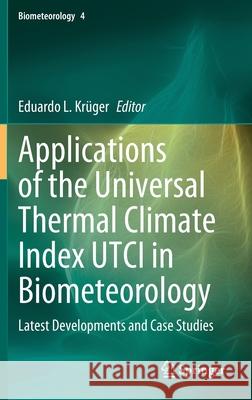Applications of the Universal Thermal Climate Index Utci in Biometeorology: Latest Developments and Case Studies » książka
topmenu
Applications of the Universal Thermal Climate Index Utci in Biometeorology: Latest Developments and Case Studies
ISBN-13: 9783030767150 / Angielski / Twarda / 2021 / 228 str.
Applications of the Universal Thermal Climate Index Utci in Biometeorology: Latest Developments and Case Studies
ISBN-13: 9783030767150 / Angielski / Twarda / 2021 / 228 str.
cena 523,30
(netto: 498,38 VAT: 5%)
Najniższa cena z 30 dni: 501,19
(netto: 498,38 VAT: 5%)
Najniższa cena z 30 dni: 501,19
Termin realizacji zamówienia:
ok. 16-18 dni roboczych.
ok. 16-18 dni roboczych.
Darmowa dostawa!
Kategorie BISAC:
Wydawca:
Springer
Seria wydawnicza:
Język:
Angielski
ISBN-13:
9783030767150
Rok wydania:
2021
Wydanie:
2021
Numer serii:
000042246
Ilość stron:
228
Waga:
0.51 kg
Wymiary:
23.39 x 15.6 x 1.42
Oprawa:
Twarda
Wolumenów:
01
Dodatkowe informacje:
Wydanie ilustrowane











